American Zionism and the Silencing of Palestine
Part 1 of 3: Messianic Myths and Colonial Ambitions
The U.S. doesn't just back the Zionist occupation of Palestine—it bankrolls it, supplies its weaponry, and protects it from international scrutiny at every turn. This transcends strategic alliances or supposed shared democratic principles. At its core lies something profound: a messianic vision woven into American imperialism—Christian Zionism—that has captured U.S. foreign policy.
This isn't international politics. It's religious extremism legitimizing colonial occupation. It transforms Palestine into a prophetic battleground where actual Palestinian lives matter less than biblical fulfillment.
The consequences of this religious framework are clear. It rewrites history to erase Palestinian indigeneity. It justifies brutal policies that criminalize resistance and deny self-determination. It silences Palestinian voices while amplifying Israeli narratives throughout Western media.
Throughout history, imperial powers have wielded religion to sanctify land theft. From the Crusades to the Americas, theology provided moral cover for ethnic cleansing and displacement. Palestine follows this brutal tradition. The assault on its people arrives not only through bombs and blockades but through biblical texts twisted to justify collective punishment.
Why does America maintain unconditional support for Israel despite violations of international law? Why do Democrats and Republicans compete to arm Israel's military? You won't find answers in foreign policy journals—they're hidden in apocalyptic prophecies and messianic visions.
This first installment exposes the theological underpinnings of America's complicity in Palestinian dispossession. Parts two and three will reveal how biblical mythology was systematically imposed to fabricate ancient Israeli history, how archaeological forgeries bolstered these claims, and how Palestinians—whose presence in the land predates biblical narratives—were deliberately erased from their own story.
The Old Testament's promised land narrative has repeatedly been weaponized to justify colonial conquest. In Palestine, it continues to enable genocide.
"Funding the Occupation" by Lucho Poletti (@LuchoPoletti)
Christian Zionism and the Colonial Imperative
America has consistently framed its wars in religious language. The Cold War transcended geopolitics—becoming a struggle between "God-fearing" democracy and "godless communism." The War on Terror evolved beyond counterterrorism—transforming into a battle of "good" versus "evil." Recall Bush's revealing words after 9/11: "This crusade, this war on terrorism is going to take a while." The assault on Palestine continues this same blood-soaked tradition.
The religious undertones were unmistakable from the moment Israel began bombing Gaza. In an October 2023 meeting with Israel's war cabinet, Biden assured Israeli leaders: "I don't believe you have to be a Jew to be a Zionist, and I am a Zionist." The moment Blinken arrived in Tel Aviv, he announced, "I come before you not only as the U.S. Secretary of State but also as a Jew." Were these just diplomatic statements, or pledges of allegiance to a messianic settler-colonial ethnostate?
Religious loyalty to Zionism, more than strategy, explains America's policy decisions—even when those decisions undermine U.S. interests. It is why every U.S. president competes to provide Israel with the most military aid, why Congress cheers for Israeli leaders as if they were American politicians.
Indeed, it is Christian Zionism—not the Jewish lobby—that is the driving force behind U.S. foreign policy. Evangelicals see Jewish control over Palestine as a messianic necessity, and this theological loyalty guarantees Washington's unconditional support for Israel, no matter the party.
This is not to say ideology alone drives empire. Christian Zionism is convenient, aligning perfectly with American strategic and capitalist interests. Israel functions as a forward operating base, an outpost of U.S. military and intelligence power, locking down energy routes, arms markets, and geopolitical dominance—a tool of empire, inseparable from it.
But this theological framework isn't just a useful tool—it is the backbone of America's unconditional commitment to Israel, one that overrides political calculations and legal constraints. Scratch the surface, and more often than not, you'll find religious ambitions underpinning the entire project.
This is why no law, no ruling, and no moral line has ever restrained Washington's commitment. Even after the International Court of Justice found plausible grounds for genocide in Gaza, Biden doubled down, rushing weapons to the Occupation. Washington didn't hesitate.
The consequences are evident. When the International Court of Justice found plausible grounds for genocide in Gaza, Biden didn't pause. He accelerated weapons shipments. No moral boundary, no international law, no human rights principle has ever restrained Washington's devotion to Israel's expansion.
Trump simply vocalized what others thought quietly. "Just clean out" Gaza, he urged. When Netanyahu visited, Trump pitched his vision: "The U.S. will take over Gaza... create thousands and thousands of jobs... something the Middle East will be proud of."
He even described Gaza's coastline as "beachfront property" that could be "better than Monaco"—once emptied of Palestinians. This isn't anomalous thinking. It's settler-colonialism stripped of pretense—genocide repackaged as urban development.
When Congresswoman Elise Stefanik invoked Israel's "biblical right" to the West Bank, she revealed the fanatical foundation of American policy. International law becomes irrelevant when you believe God granted you the deed.
What exactly do Christian Zionists believe? They follow dispensationalist theology—the belief that Jewish control of scriptural territories (including all of Palestine) must precede Christ's Second Coming. This explains their obsession with Jerusalem, their push to rebuild the Jewish Temple, their rejection of Palestinian statehood.
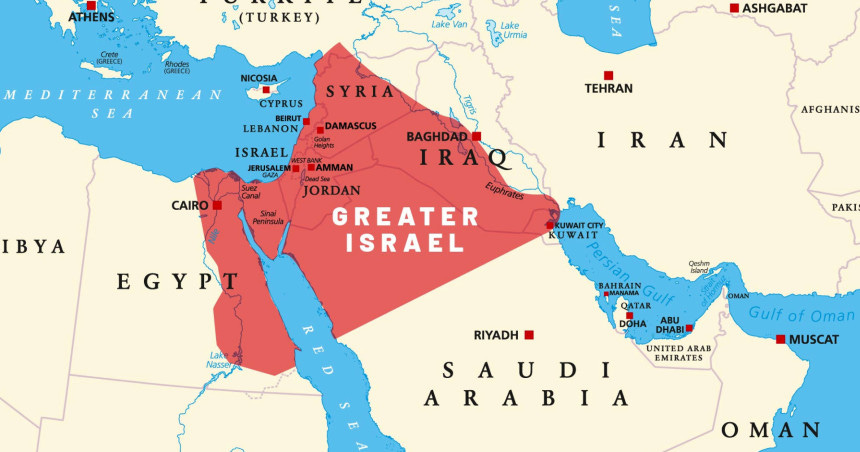
The endgame is apocalyptic war—Armageddon—followed by Christ's return. Jews must then convert or face judgment alongside other non-Christians.
This isn't fringe doctrine. It shapes U.S. foreign policy. It transforms Palestinians from people with rights into spiritual obstacles—impediments to divine prediction that must be removed.
This messianic vision predates modern Zionism by decades. Before Theodor Herzl convened the First Zionist Congress in 1897, American Protestants had already designated Palestine as the stage for scriptural fulfillment.
In 1891, William Blackstone gathered signatures from America's elite—J.P. Morgan, John D. Rockefeller, prominent clergy—urging President Harrison to support Jewish resettlement in Palestine. Their motivation wasn't Jewish self-determination but realizing sacred predictions.
By the time Herzl published The Jewish State (1896), American religious thought had already prepared the ground for colonization. Palestine wasn't just land—it was the divinely appointed theater for end-times drama.
The bombs falling on Gaza aren't merely weapons of war. They're instruments of celestial design. Security concerns are secondary to sacred imperatives. The deaths aren't collateral damage—they're necessary sacrifices on the altar of messianic delusion.
In this apocalyptic script, Palestinian survival was never written in.
Christopher Columbus: A Journey for Jerusalem, Not the New World
To understand America's entrenched religious fanaticism, we must return to its foundation. Long before modern Zionism, the American project was built on theological extremism. This crusading spirit traces back to 1492 and the man who set global colonization in motion—Christopher Columbus.
Columbus didn't sail to discover new lands. He sailed to fund a holy war.
His expedition was never about exploration but conquest fueled by apocalyptic urgency and dreams of Christian domination. The conversion of indigenous peoples served no humanitarian purpose—it prepared the world for divine judgment. This wasn't a secondary objective—it formed the very foundation of his mission, the opening act in a centuries-long drama that laid groundwork for today's global inequality.
Historian Carol Delaney documents this extensively in Columbus and the Quest for Jerusalem (2011). Columbus was "inspired to find a western route to the Orient not only to obtain vast sums of gold for Spain but primarily to help fund a new crusade to take Jerusalem from the Muslims."
His agreements with Queen Isabella explicitly stipulated that voyage wealth would finance this crusade. This wasn't speculation—Columbus declared these intentions repeatedly in his own writings. His diary, letters, and especially his Book of Prophecies (Libro de las Profecías) (1501) reveal a man obsessed with apocalyptic theology, convinced the world approached its final days, and that he fulfilled divine prophecy. He even calculated years remaining before apocalypse, certain his discoveries were steps toward Christ's return and Jerusalem's final battle.
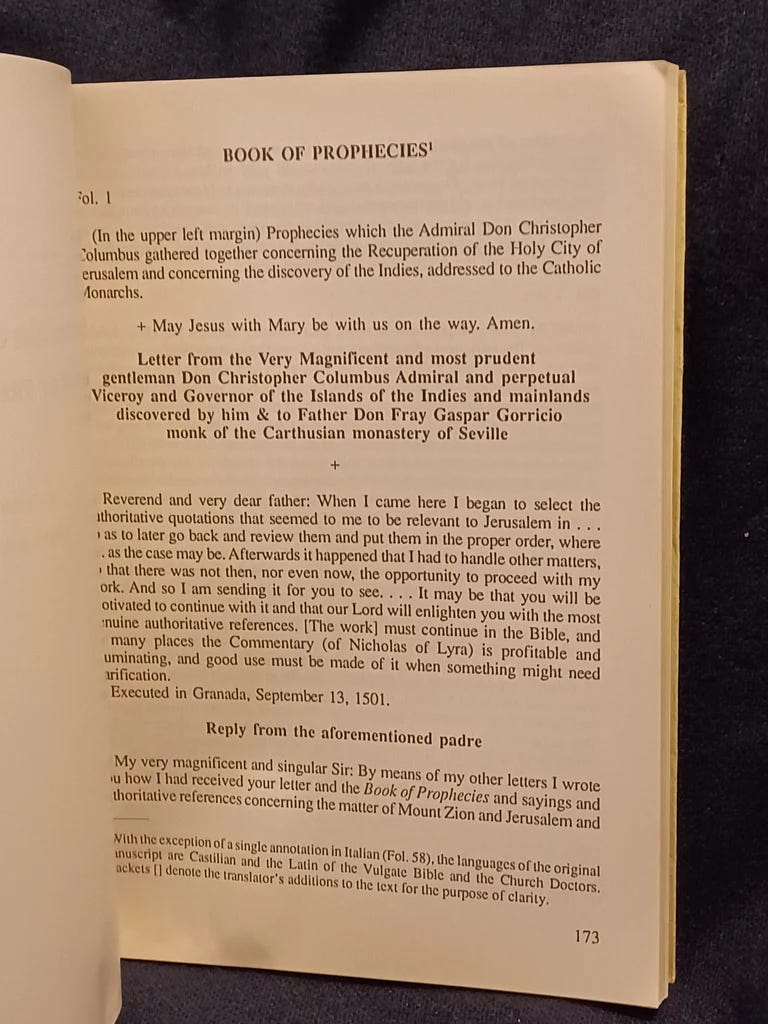
His journal entry from December 26, 1492, stated his purpose plainly: "I hope to God that when I return to Castile, I will find a barrel of gold... and spices, and in such quantity that within three years the Sovereigns will prepare and undertake to conquer the Holy Places. I have urged Your Highnesses that all the profits of this my enterprise should be spent on the conquest of Jerusalem."
Why has this been scrubbed from popular history? Why do schoolchildren learn about the Niña, Pinta, and Santa Maria but not about Columbus's crusade obsession?
In letter after letter, Columbus reinforced his true mission. Writing to Spain's monarchs in 1493, he declared: "In seven years from now I will be able to pay Your Highnesses the costs of five thousand cavalry and fifty thousand infantry in the war and conquest of Jerusalem, which was the reason for undertaking this enterprise; and five years thereafter, another five thousand cavalry and fifty thousand infantry."
He saw himself as divinely appointed, wrote: "Of the new Heaven and new Earth which Our Lord spoke of through St. John in the Apocalypse, and through the mouth of Isaiah, He [God] made me the messenger of it, and He showed me where to find it."
This religious framework shaped his entire worldview. For Columbus and his contemporaries, Jerusalem wasn't just a city—it was the center of the world, literally and spiritually. Medieval maps placed it at the heart of the three continents, which they believed corresponded to Noah's three sons.
Jerusalem's Muslim control represented a spiritual emergency for Christendom—a crisis demanding immediate action.
Columbus's voyage emerged directly from the medieval Christian-Muslim conflict. The Ottoman conquest of Constantinople in 1453 had severed European access to eastern trade routes. Muslim control of the spice routes through the Mediterranean, Red Sea, and Indian Ocean threatened both Christian commerce and crusading ambitions.
The 1492 end of Muslim rule in Spain (Al-Andalus) marked a turning point, but Islamic powers still dominated vital trade networks. Columbus's westward journey wasn't just about finding India—it was about bypassing Muslim control and funding a new crusade.
The "Age of Exploration" was, at its core, a Christian war against Islamic commerce—a religious battle for global dominance.
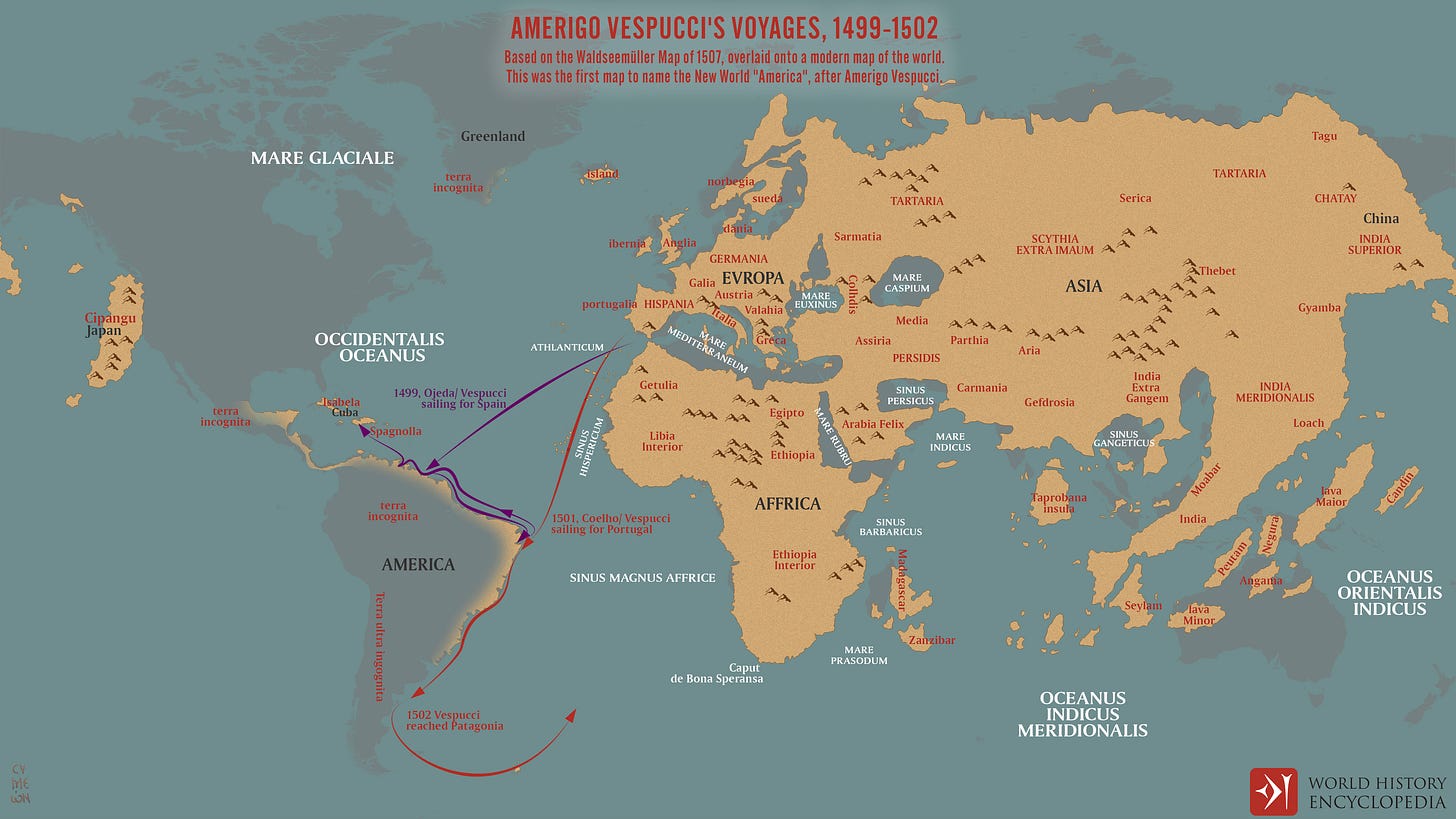
Columbus never abandoned his Jerusalem obsession. In 1502, a decade after his first voyage, he wrote to Pope Alexander VI: "This enterprise was undertaken with the purpose of spending whatever accrued from it in restoring the Holy Sepulcher to the Holy Church."
Even on his deathbed in 1506, Columbus signed a codicil to his will establishing a trust fund "for the purpose of liberating Jerusalem from the power of the Muslims."
His apocalyptic vision never wavered. From first voyage to final breath, Columbus saw himself as fulfilling prophecy—the man chosen to fund Christianity's recapture of Jerusalem and usher in Christ's return.
The historical record is undeniable. The documents speak clearly. Columbus sailed for Jerusalem, not for discovery.
So why does conventional history erase this religious fanaticism? Because acknowledging it would expose the theological roots of American settler-colonialism—the same roots that now feed U.S. support for Israel's conquest of Palestine.
The line from Columbus to Christian Zionism isn't a coincidence—it's a direct inheritance, an unbroken chain of apocalyptic theology used to justify indigenous erasure.
The Theology of Conquest
The Old Testament transformed into an instrument of domination long before Israel's formation. Its accounts of divine entitlement and divinely mandated extermination offered flawless justification for imperial ambitions. The identical sacred texts that rationalized Native American annihilation now legitimize Palestinian expulsion.
The Protestant Reformation transformed conquest narratives from allegory into literal mandate. Martin Luther's 1517 revolution carried geopolitical significance. By elevating the Old Testament and translating it into vernacular languages, he weaponized religious texts for territorial ambition. His emphasis on heavenly selection and promised lands shaped European colonial imagination for centuries.
Puritans who colonized America pursued more than religious freedom. They enacted biblical prophecy, casting themselves as Israelites escaping Egyptian bondage (England) to claim their promised Canaan (America). Native Americans became Canaanites and Amalekites—divinely marked for elimination.
This worldview shaped every aspect of colonial life. The map of New England reveals this reality: Salem, Sharon, Goshen, Lebanon, Canaan, Bethel, Hebron—these biblical names marked territories claimed through heavenly mandate, landscapes reimagined as prophetic fulfillment.
Cotton Mather, the influential Puritan minister, made this explicit in 1702. He praised colonial leaders who "obtained a Blast from Heaven upon their Indian Amalekites" through prayer. Native Americans represented obstacles, condemned by scripture itself.
The sacred command was chillingly clear: "When the Lord your God gives you rest from all your enemies around you, in the land that the Lord your God is giving you as an inheritance to possess, you shall blot out the memory of Amalek from under heaven." (Deuteronomy 25:19)
And more explicitly: "Now go and strike Amalek and devote to destruction all that they have. Do not spare them, but kill both man and woman, child and infant, ox and sheep, camel and donkey." (1 Samuel 15:3)
These weren't distant historical references. They were active battle orders—divine mandates that transformed genocide into sacred duty.
Sound familiar? Today, Israeli extremists use identical language against Palestinians. When Israeli ministers call Palestinians "Amalek," they invoke the same biblical command to utterly destroy them that Puritans used against Native Americans.
This approach—reading current events as religious reenactments—transforms land theft into sacred destiny. The pattern repeats: claim heavenly selection, identify native populations as scriptural adversaries, declare territorial expansion as prophecy fulfilled.
America's 19th-century Manifest Destiny merged nationalism with religious imperialism. God had ordained American expansion westward, regardless of who already lived there. The slaughter of Native Americans fulfilled divine will.
Modern Zionism follows the same path. When Rabbi Tzvi Yehuda Kook declared, "The entire country is ours... there is no Arab land here, only Jewish land, the eternal land of our forefathers," he issued a religious pronouncement with genocidal implications.
Both ideologies frame conquest as restoration. American settlers "reclaimed" their Canaan. Zionists "return" to ancestral homeland. Both narratives erase original inhabitants by casting their presence as temporary and divinely scheduled for removal.
The connection runs deeper than coincidence—American religious doctrine created the framework now justifying Palestinian dispossession. From Puritan settlements to Israeli settlements, from Native American removal to Palestinian exile, the playbook remains unchanged.
What we witness in Gaza stands as the logical conclusion of a worldview that has always justified indigenous erasure as divine will. The same God that supposedly commanded Amalek's destruction now justifies bombing Palestinian children.
The same religious foundation that justified genocide in America now underpins American support for Zionist occupation. The genocide in Gaza follows a centuries-old pattern.
"Stream of Consciousness" by Natrix (@onlynatrix) - Best viewed full screen with sound
Empire, Scripture, and Zionism
The Bible has served as empire's preferred arsenal for centuries. From medieval crusades to contemporary territorial seizures, religious manuscripts have validated oppression and rationalized ethnic purges. Throughout history, religious justification has been a powerful and pervasive tool for colonial ventures, with sacred texts frequently manipulated to sanctify conquest and dispossession.
Pope Urban II launched the First Crusade in 1095 with the battle cry "Deus vult!" ("God wills it"). His command was explicit: "Go against the infidels... rescue that land from the accursed race, and rule over it yourselves." He even promised that dying in this "righteous war" would erase sins—mass slaughter reframed as soul cleansing.


These weren't "crusades" to the region's indigenous Christians. In Arabic, they were simply "Frankish Wars"—European invasions that slaughtered local Christians alongside Muslims and Jews.
This pattern repeated across continents. Afrikaner settlers in South Africa framed their Great Trek as a biblical exodus, casting indigenous Africans as Canaanites divinely marked for dispossession. British colonists in Australia invoked Joshua's sword against Aboriginal peoples. Belgian colonizers in Congo labeled natives as "Amalekites" to be "utterly blotted out."
Each colonial project followed the same script: claim heavenly selection, demonize indigenous people as scriptural adversaries, and frame conquest as prophecy fulfilled. God's will became whatever served imperial interests.
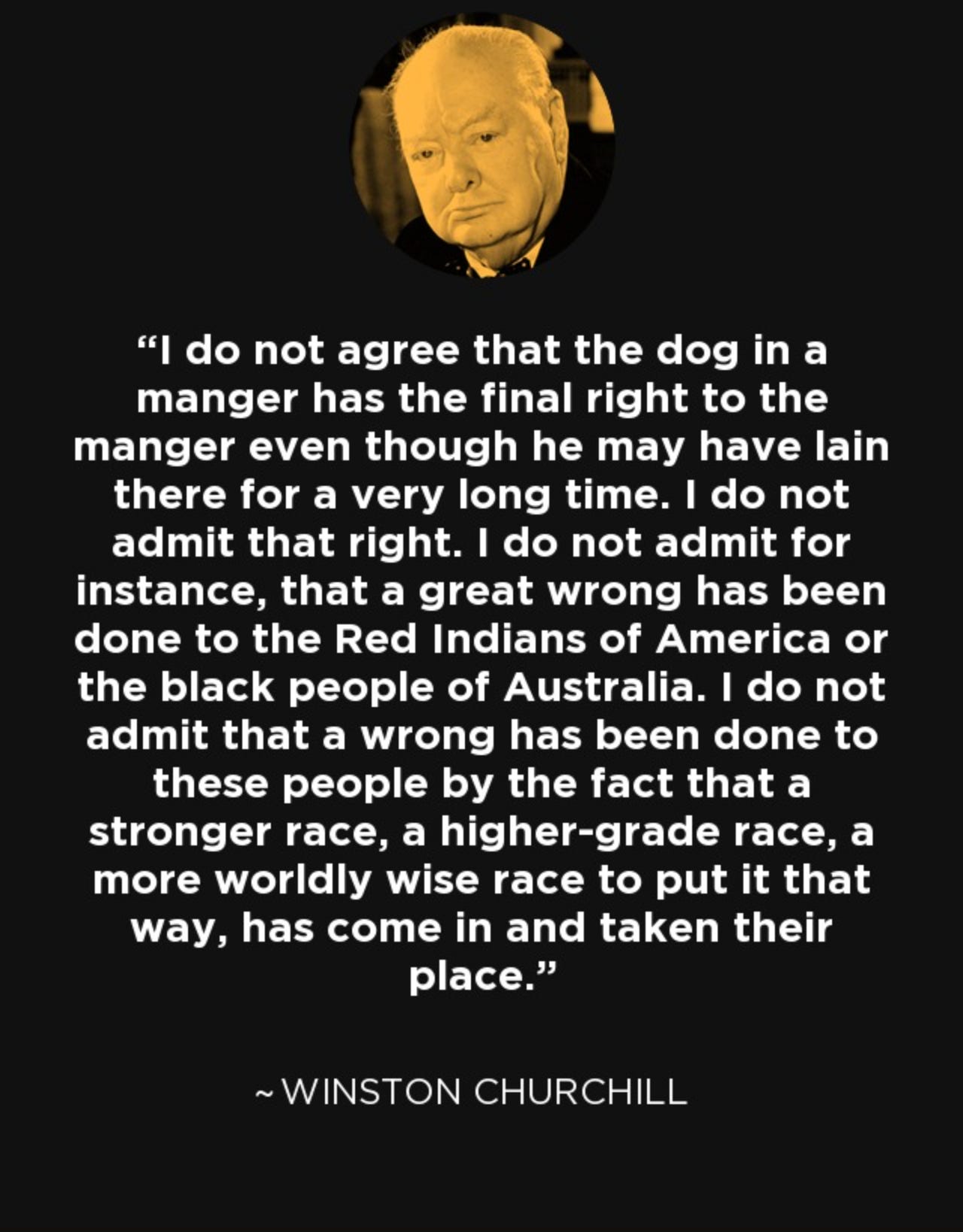
Palestine was no exception. British imperialism merged seamlessly with Christian prophecy. Lord Shaftesbury promoted Jewish resettlement as biblical fulfillment, while the 1917 Balfour Declaration prioritized Zionist claims over Palestinian rights. When Israel was established in 1948, Christian Zionists celebrated it as prophetic validation—proof that God's word was being fulfilled through colonial dispossession.
How did the Bible become such an effective tool for conquest? The answer lies in early church history, when Christianity decided which texts would become scripture.
Early Christians didn't automatically adopt Jewish texts. As scholar Bart Ehrman documents in Lost Christianities (2003), some early Christian communities embraced these writings, while others rejected them entirely. The question became urgent in the 2nd century when theologian Marcion argued that the vengeful God of Hebrew scripture contradicted Jesus's loving deity.
Even Jewish scripture wasn't fixed. During the Second Temple period (500 BCE–70 CE), multiple Jewish sects maintained different collections of sacred texts. The Dead Sea Scrolls reveal this diversity, showing "no hint of a defined canon."
Biblical scholar Michael Barber noted that during the Second Temple period, no universally agreed-upon Jewish Bible existed. Various sects maintained distinct sacred collections. The Dead Sea Scrolls discovered in 1947 illustrate this fluidity, providing "no hint of a defined canon" and showing no clear division between scripture and other revered writings.
Only after the Second Temple's destruction in 70 CE did Jewish rabbis define their canon. Barber stated: "The final closing of the Hebrew canon by the Pharisaic teachers... must be categorized as anti-heretical, indeed anti-Christian." This process excluded books found in the Greek Septuagint, which early Christians, particularly Greek-speaking converts, had adopted as their Old Testament.
This unstable scriptural landscape created further tensions. Ehrman's research confirmed that early Christian scribes sometimes modified New Testament texts to reduce contradictions with the Old Testament or evolving theology. Since manuscripts were copied by hand, "scribes added to or even changed [the] text to clarify a passage or suit the theological preferences of their communities."
While many changes were unintentional, some were deliberate "pious edits" aligning scripture with theological expectations. Modern critical editions document these textual variants, allowing scholars to reconstruct earliest readings.
Ehrman's scholarship confirmed that early Christianity debated scripture extensively, including what to do with the Old Testament. During this process, some copyists adjusted new scriptures to ease tensions. Early Christians struggled with a fundamental question: "How could the wrathful, vengeful God of the Jews [in the Old Testament] be the loving, merciful God of Jesus?"
Bruce Metzger explained in The Canon of the New Testament (1987) that early Christian communities had no uniform canon and assigned varying degrees of authority to Jewish scriptures.
Ultimately, Christianity retained the Old Testament not as conquest justification but as testimony to Christ. By the 4th century, the Christian Old Testament was largely settled. The early Church adopted the Septuagint's expanded collection, including books omitted from the Jewish canon.
The Christian biblical canon wasn't formally confirmed until the late 4th century. The Council of Carthage (397 CE) recognized scriptural books for church readings, affirming the Old Testament alongside the 27 books of the New Testament. By the medieval period, when biblical conquest narratives justified holy war and colonial expansion, the Old Testament's authority had been firmly established.
This contested process shows how Christian scripture was shaped by theological disputes, historical pressures, and institutional power. What began as diverse texts became a fixed canon later wielded for empire and conquest. The Christian embrace of the Old Testament provided scaffolding for colonial projects where annexation, domination, genocide, and slavery fulfilled "God's will." European imperialists embedded these narratives into national myths—myths still shaping today's world.
The consequences continue today. The same sacred passages that once justified the genocide of Native Americans now sanction the bombing of Gaza. The same conquest theology that drove European imperialism now fuels Israeli settlements. The pattern remains unchanged: heavenly mandate claimed, original inhabitants wiped away, land theft sanctified.
This isn't ancient history—it's current policy. When American politicians invoke Israel's "biblical right" to Palestinian land, they're continuing a tradition of scriptural manipulation that has enabled genocide for centuries.
Every Christian now faces a moral choice: Will you allow your faith to legitimize ethnic cleansing? Will you remain silent as scripture is perverted to justify oppression? Will you stand with empire or with its victims?
The question for Christian Zionists is simple: Whose kingdom are you building? If you claim to follow Christ, why do your actions serve empire, not justice?
The Unspoken Paradox of Christian Zionism
The partnership between Jewish and Christian Zionists conceals a lethal paradox. They unite to eliminate Palestinians while harboring fundamentally irreconcilable visions of the future. Their coalition rests not on shared beliefs but on reciprocal manipulation—with Palestinian destruction as the sealing pact.
Evangelical Christians are Israel's most passionate American supporters. Leaders like Jerry Falwell declared, "To stand against Israel is to stand against God." They frame support for Israel as divine mandate, insisting that "God deals with nations in relation to how they deal with Israel."
But what's the endgame of this theological alliance? Here's the unspoken truth: in evangelical prophecy, Jews are merely props in a Christian apocalyptic drama. Once they've served their purpose by controlling Jerusalem and rebuilding the Temple, they must either convert to Christianity or face divine judgment.
This isn't fringe theology. It's mainstream evangelical eschatology. The University of Michigan's analysis put it bluntly: "They believe Jesus cannot return for the Second Coming until the Jews are regrouped in their biblical homeland and then converted to Christianity. They believe further that even devout Jews are not welcome in heaven."
Both sides know this. Jewish Zionists accept evangelical money, weapons, and political support while aware their Christian benefactors ultimately expect them to abandon their faith. Meanwhile, evangelicals back Israeli expansionism while believing most Jews will be damned unless they convert.
This paradox reveals the cynical foundation of the alliance. Palestinians aren't just collateral damage—they're necessary sacrifices in a theological bargain built on mutual deception.
Why is this contradiction rarely addressed in mainstream discourse? Because exposing it would unravel the moral pretense of unconditional American support for Israel.
Not all Christians endorse this theology. The Church of Norway explicitly condemned Christian Zionism in 2020 as "theologically unacceptable and incompatible with human rights." The Vatican's 2010 Synod declared that biblical texts cannot justify modern territorial claims. Mainline Protestant denominations have issued similar rejections.
The Jerusalem Declaration of 2006, signed by Palestinian Christian leaders, denounced Christian Zionism as "false teaching" that perverts Christianity to serve imperial interests. These voices rarely make American headlines because they contradict the dominant narrative.
Palestinian Christians—whose presence in the land predates the Islamic conquest and traces directly to the earliest church—categorically reject Christian Zionism. They don't interpret scripture as justification for ethnic cleansing. For them, Zionism isn't divine fulfillment—it's colonial dispossession masked by religious rhetoric.
Orthodox Archbishop Atallah Hanna stated it plainly: "Those who call themselves 'Christian Zionists' are not Christians at all. Their ideology and rhetoric have no connection to Christian values. A true Christian stands with the oppressed, not the oppressor. A true Christian rejects tyranny, occupation, and the humiliation of human dignity."
Unlike American evangelicals, Eastern Christians don't divide the region along sectarian lines. As Hanna affirmed: "We, Christians and Muslims of the Levant, will remain one united Ummah, with Al-Quds as our compass and Palestine as our cause. We are one family—this is who we have always been, and this is who we will remain."
The presence of Palestinian Christians dismantles the foundational narrative of Zionist ideology. Their uninterrupted habitation since Christianity's birth—in the very land where Christ walked—contradicts claims that Palestine was vacant territory awaiting Jewish restoration. They embody a continuous lineage that challenges the very premise of the Zionist project.
This explains why Palestinian Christians face dual elimination—physically via displacement and intellectually through historical distortion. For evangelical Zionists, they aren't fellow believers worthy of solidarity—they're theological inconsistencies that disrupt the ordained narrative.
Palestinians firmly resist this eradication. Their identity surpasses religious distinctions. It has been cultivated across generations of rootedness, collective resistance against colonial powers, and cultural heritage that predates all imperial conquests. Their bond with Palestine isn't inscribed in foreign texts—it's woven into every olive grove, stone dwelling, and melody transmitted across centuries.
They refuse relegation to marginal characters in another's divine drama. They stand as indigenous custodians of territories their ancestors have inhabited for millennia. Their living reality refutes Zionist claims—representing an enduring community that colonial historians cannot acknowledge without undermining their entire ideological framework.
Palestine was never empty. Palestine was never abandoned. Palestine was never waiting for fulfillment through the destruction of its people.
The Palestinian nation continues to exist despite systematic attempts to wipe it away—not just physically through bombs and blockades, but conceptually through the distortion of history. Their continued existence is not just survival; it is resistance. Their memory is not just recollection; it is revolution, intifada.
As long as Palestinians breathe, the colonial project remains incomplete. As long as they pass their stories to their children, the erasure fails. As long as they claim their rightful place as the indigenous people of the land, the messianic myths that justify their dispossession will be unmasked as empire speaking in the language of religion.
Palestine lives. And no amount of biblical manipulation can bury this truth.



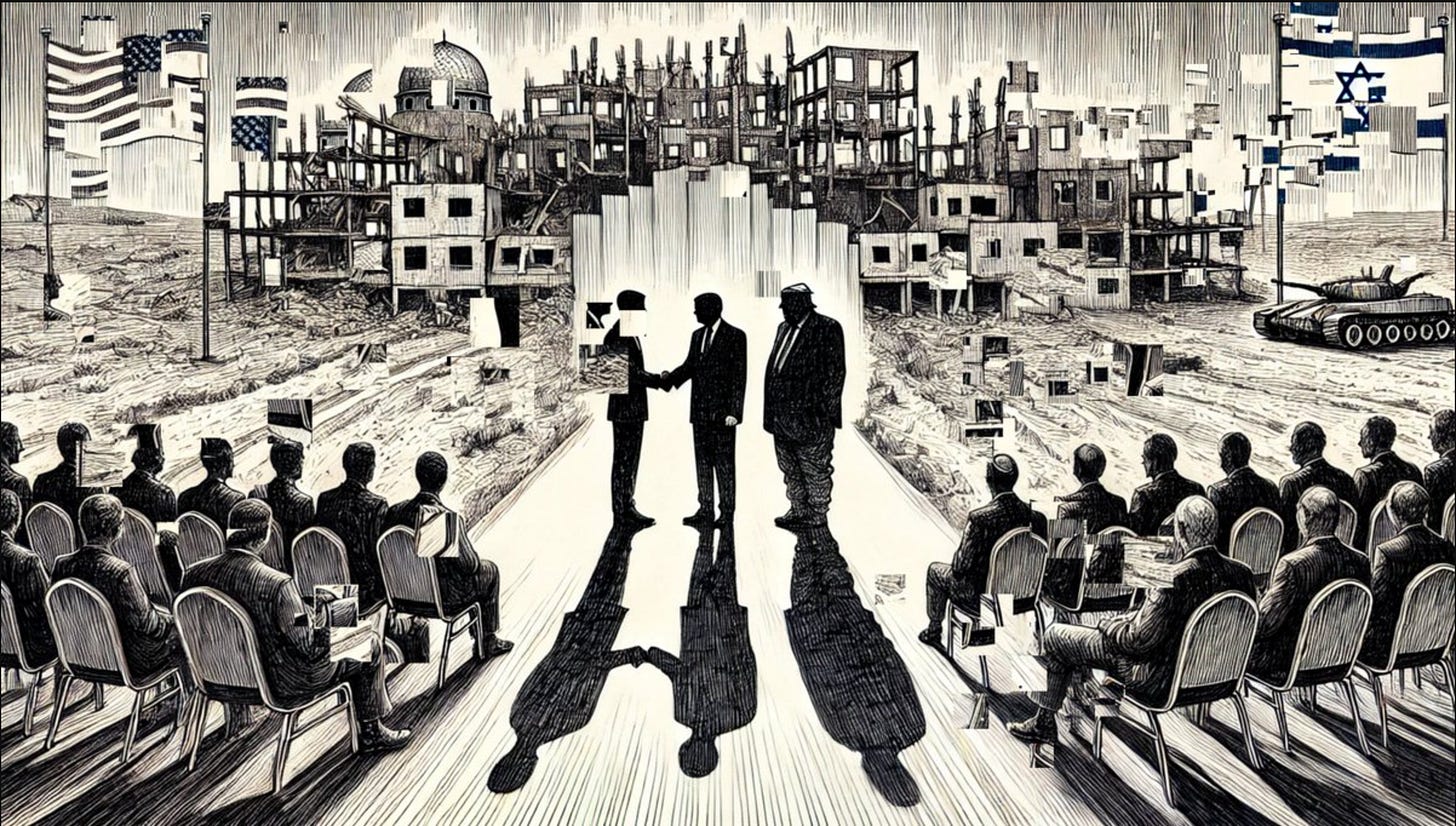



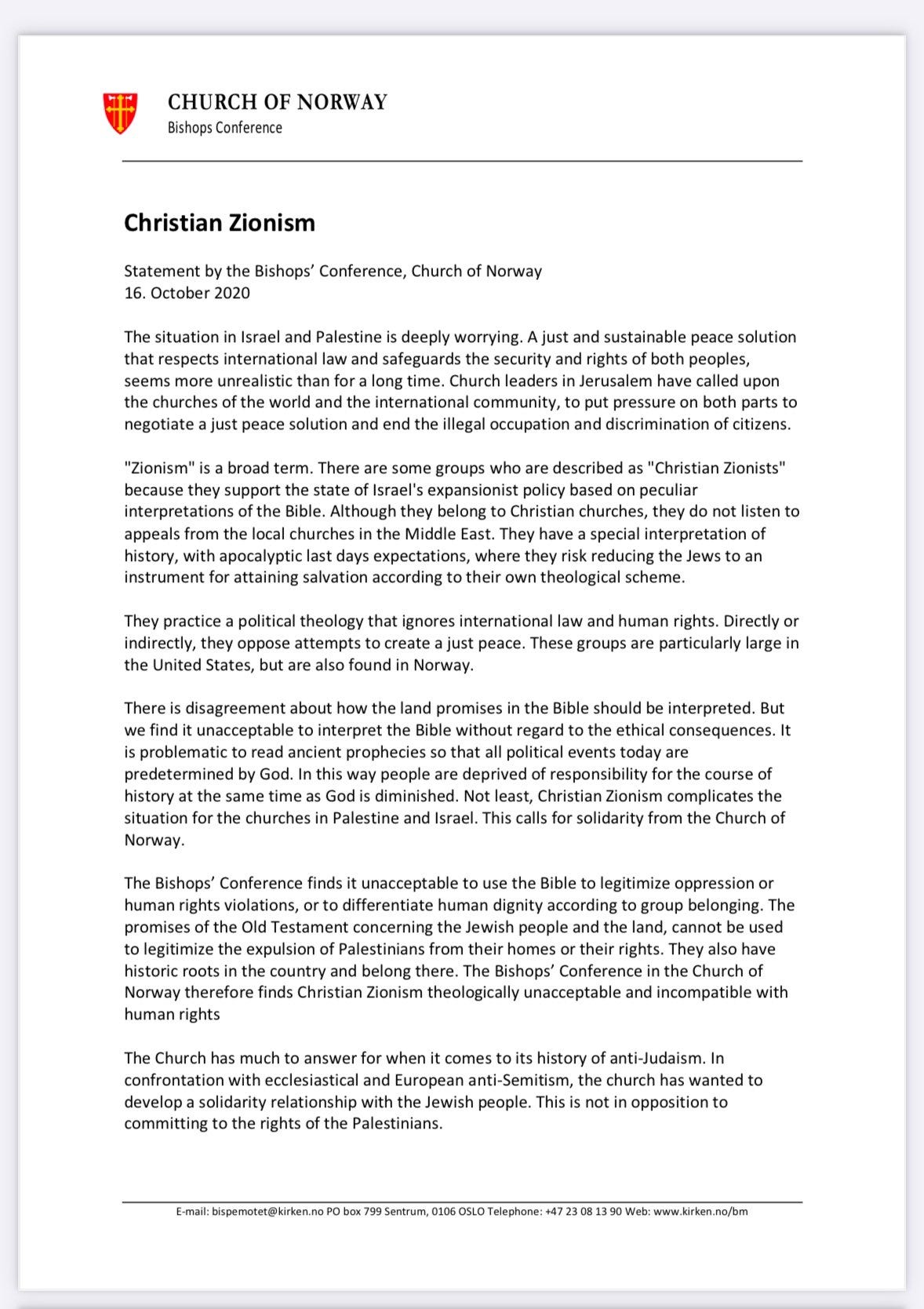


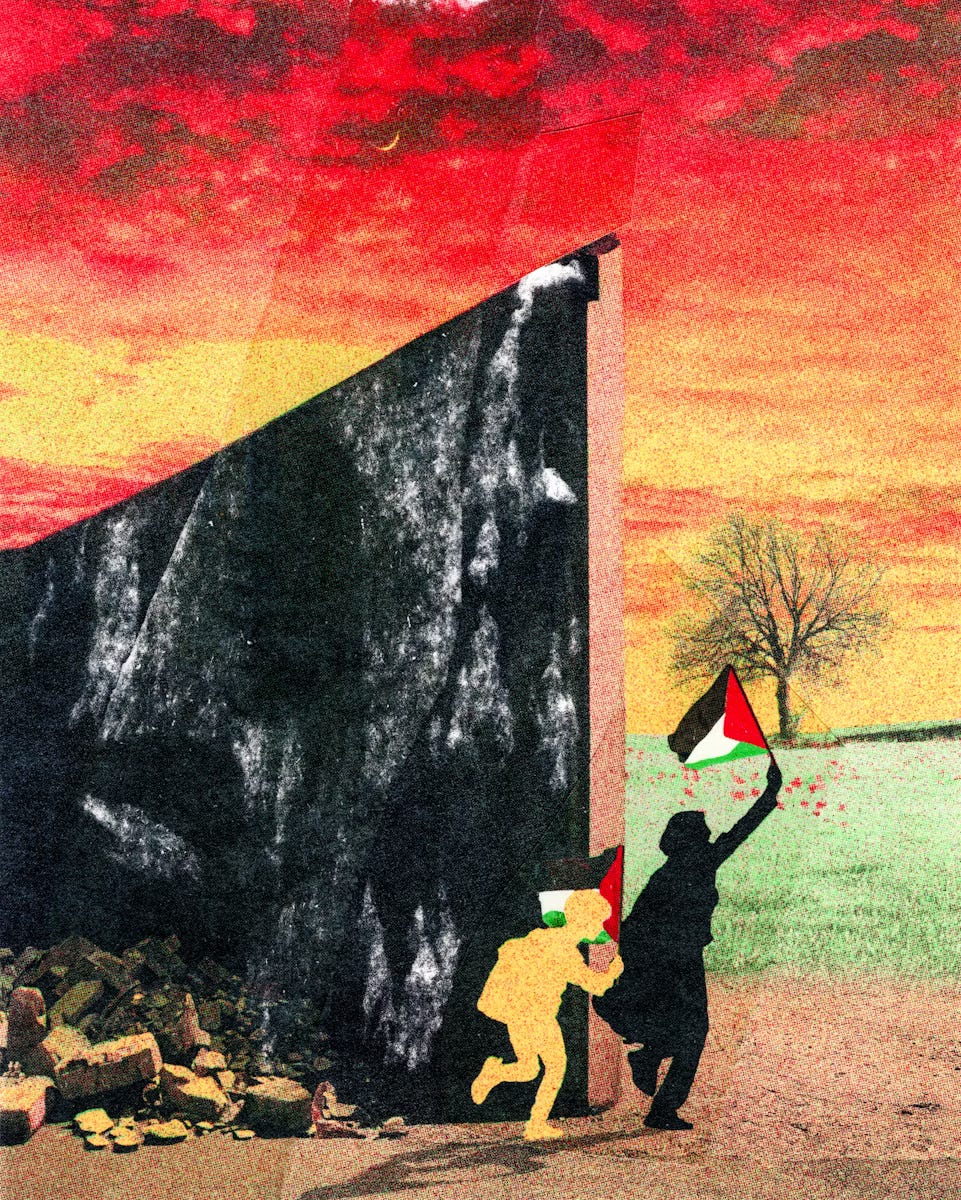
Brilliant as always! Can't wait for the remaining parts.
🕊🤍🇵🇸